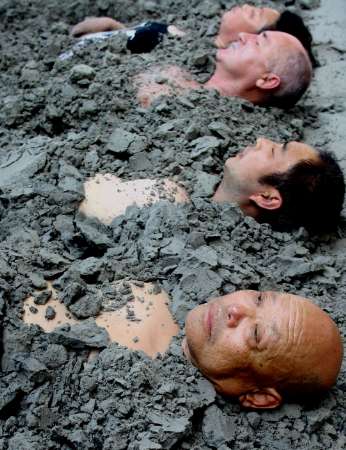 The drafting of the Anti-Counterfeit Trade Agreement (ACTA) isn’t going so well. The agreement, which at least hints at three strikes provisions and third-party criminal liability for IP infringement, was finally leaked in its entirety last week. Now it seems that the drafters are a little nervous that authoritarian regimes might use ACTA to suppress speech. Wow, ya think? But we do not need to look to our enemies to find atavistic Internet policies. In the last few weeks, two of our staunchest supporters (South Korea and Australia) have been added to the illustrious Enemies of the Internet list. If even our well-intentioned, democratic allies offend Internet freedom by way of the rule of law, can there be any doubt that repressive regimes will do the same?
The drafting of the Anti-Counterfeit Trade Agreement (ACTA) isn’t going so well. The agreement, which at least hints at three strikes provisions and third-party criminal liability for IP infringement, was finally leaked in its entirety last week. Now it seems that the drafters are a little nervous that authoritarian regimes might use ACTA to suppress speech. Wow, ya think? But we do not need to look to our enemies to find atavistic Internet policies. In the last few weeks, two of our staunchest supporters (South Korea and Australia) have been added to the illustrious Enemies of the Internet list. If even our well-intentioned, democratic allies offend Internet freedom by way of the rule of law, can there be any doubt that repressive regimes will do the same?
Background: Reporters Without Borders puts out an annual report on Internet censorship and labels the largest offenders as either pervasive censors "enemies of the Internet" or as substantial censors "under surveillance." The usual "pervasive" suspects include Burma, China, and Iran. But most recently, Australia and South Korea found themselves on the substantial "under surveillance" list. Who are some of the other substantial censors? Qatar, Russia, Saudi Arabia, UAE, and Yemen.
To be fair, it seems that good intentions drive the repressive actions of our allies. In the land down under, blocking access to child pornography is of paramount importance. Australia is planning to implement one of the most restrictive Internet filters a democracy has ever seen, surely screening out legal material in the process. Perhaps the Aussies are jealous of New Zealand, which turned on an Internet filter of its own in February (and conveniently neglected to mention this fact to the public until a month later). South Korea is more concerned with preventing libel (especially for political candidates) and eliminating online anonymity. New criminal provisions allow for a sentence of up to 5 years for reporting of false news. Users are required to enter their real name and their national ID number when using websites with more than 100,000 members.
These nations enjoy the advantages of a politically engaged citizenry and functioning justice systems. If we are lucky, ACTA might only slightly exacerbate these disturbing trends of censorship. Do we doubt for even a second that ACTA will be a boon for oppressive regimes unencumbered by robust legal protections? Finally, dictators will have a legitimate and legal International agreement to frustrate, harass, and/or identify online dissenters. Perhaps ACTA is a job stimulus bill aimed at the world’s torturers.
Now that ACTA has finally been leaked in its entirety, I can cite some scary stuff. Let’s just focus on one provision:
Each Party shall enable right holders, who have given effective notification to an online service provider of materials that they claim with valid reasons to be infringing their copyright or related rights, to expeditiously obtain from that provider information on the identity of the relevant subscriber.
chapter 2, section 4, article 2.17, paragraph 3, option 3ter
Wow. There goes anonymity and due process. Let’s say I am an oppressive regime. One of the very few ways my citizens can reach me is by videotaping and publicizing my brutal methods of silencing protesters (warning, disturbing link). Now, not only can I use bogus takedown requests to pull down those videos (think a global DMCA) but I can also get the private information of the poster. No doubt the poster's arrest, rape, and unfortunate "suicide" will follow. Good God, ACTA is like a Swiss Army knife for autocrats. It slices, it dices, it censors, and it traces.
Surely, if we adopt ACTA, we will receive requests for greater information transparency from countries with very different understandings of privacy and human rights. ACTA will encourage our allies to curtail Internet freedom (and I very much doubt that the US will voice much protest). Worse still, ACTA will provide legal leverage/cover for the world’s most repressive regimes to silence their critics at home and abroad. We should not, and must not, legitimate censorship and digital oppression.
(Andrew Moshirnia is a second year law student and CMLP blogger. He is learning to hate good intentions.)




